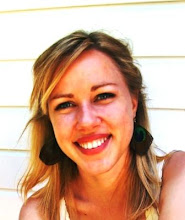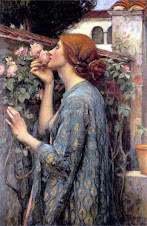“You have school tomorrow,” she would say.
“Just let me finish this chapter,” I would answer, my eyes returning to the pages even before she could shut the door again. I would go on until my eyes burned and my head ached. Once, I went until the sun rose, and I closed the book with genuine surprise to see dawn supplanting the lamplight.
I loved best the old, hard-cover books bound in cloth. I loved the world-weary smell of their slowly moldering bindings, the soft, whispering, rent-fabric sound the pages made when I turned them over. I loved their heft, their immutable solidity, and how, when it was full of them, my book bag strained against my shoulder blades like the weight of a pair of wings.
I read new, glossy paperbacks, too, and I read them over and over again until the covers fall apart like old wash rags. Indeed, for all the love I bore my books, I treated them roughly. I broke their spines. I dog-eared and creased the paper. I smeared the pages with chocolate, grease, and sometimes tears. I made them my bedfellows and rolled over them in my sleep. I loved them not like deities, but like extensions of my own family: Brother and Sister Book.
Not that I lacked for siblings. I was sandwiched between two sisters, and I spent hours with them at girlish games. But somehow I always wound up with my books again, skinny, scabbed knees drawn up against my chest, the book supported between the palm and thumb of my right hand, and the sticky, oxidized brown core of an apple long forgotten in my left.
Reading was a bonfire with me, and I found it hard to come up with enough new books to feed it. I “stole” books from my older sister’s backpack, reading her literature class assignments two years before I would go through the same curriculum. I feasted my bibliomania at the library from time to time, but, given the tendency of books to get lost or damaged under my guardianship, I preferred to own instead of borrow. After Christmas and my birthday in August, with gift certificates burning holes in my pockets, I would spend hours examining the shelves of the retail bookstore for the treats I would take home and devour.
Mostly, though, I re-read books: Louisa May Alcott’s Little Women and Little Men, L.M. Montgomery’s Anne books, Jean Craighead’s My Side of the Mountain, Wilson Rawls’ Where the Red Fern Grows, Corrie ten Boom’s The Hiding Place, Jack London’s The Call of the Wild, Edmond Rostand’s Cyrano d’Bergerac, Carol Ryrie Brink’s Caddie Woodlawn, Elizabeth George Speare’s The Witch of Blackbird Pond, Laura Ingalls Wilder’s Little House books, Hannah Hurnard’s Hinds’ Feet on High Places, plus Dickens, Austen, and Shakespeare in their glorious canons. I read the Bible in its sonorous entirety, putting a small dot and the date next to each chapter as I completed it.
I would read my favorite books twelve or thirteen times, until whole paragraphs played in my mind with the resonance of liturgy, until the authors’ voices leaked out of my pen (Thanks to Dickens, I am still trying to exorcise the Victorian narrator wont to show up in my writing). If my family taught me English, books taught me language – its rhythm, its variety, its power – and I have never forgotten the lessons, though my self-guided tours were not without peril. To this day, I still come across words that I pronounce incorrectly because I have never heard them – only read them. Until I was fifteen, I thought that “unsh” was a verb, meaning, onomatopoeically, to scrunch up one’s face to hold back emotion. I derived it from the phrase “unshed tears.” How I mourned the loss of that word when I discerned my error.
The books I re-read offered me some kind of emotional release, some field on which to play out the conflicts of a reserved, bookish child. I identified especially with female misfits – Laura Ingalls, Caddie Woodlawn – and all the more so with bookwormy misfits – Jo March and Anne Shirley. Over and over again, I would cry along with their travails and self-doubting, at how the world misunderstood them, and over and over again, I would hang in anticipation for the moment when love vindicated the heroine. In more cynical moments, I longed for the resigned, self-effacing sweetness of Beth March or Mercy Wood.
It seems likely, looking back, that the books kept me sane. Into them I funneled my unresolved complexity, to be faced at my own pace, and with the buffers of vicarious distance and melodic language safely in place. If I sometimes disappeared for days, my family seemed to sense my need, drawing me up from the pages only often enough for food or sleep.
As an adult, I still spend occasional afternoons ensconced in the pages of a book, but I no longer read with my former rapacity. I grow bored. Sometimes I skip to the end, scanning for interesting chapters, and sometimes I put a book down forever, unfinished. As a child, I never missed so much as a preposition, cleaving to my books with the fidelity of a soldier to his squadron. The books have not changed; it must be me.
While this change feels strange to me, I try to take this as a good omen. If I find myself less absorbed in the makings of an author’s mind, I will hope that the traffic has improved between me and the world that has no covers.






2 comments:
alyson -you must write in a bigger font!!
And all those words on all those pages prepared you for the ones you would one day commit to pages of your own, sharing profound insights of a life lived in that world with no covers...beautiful words, beautifully expressed.
Gg
Post a Comment